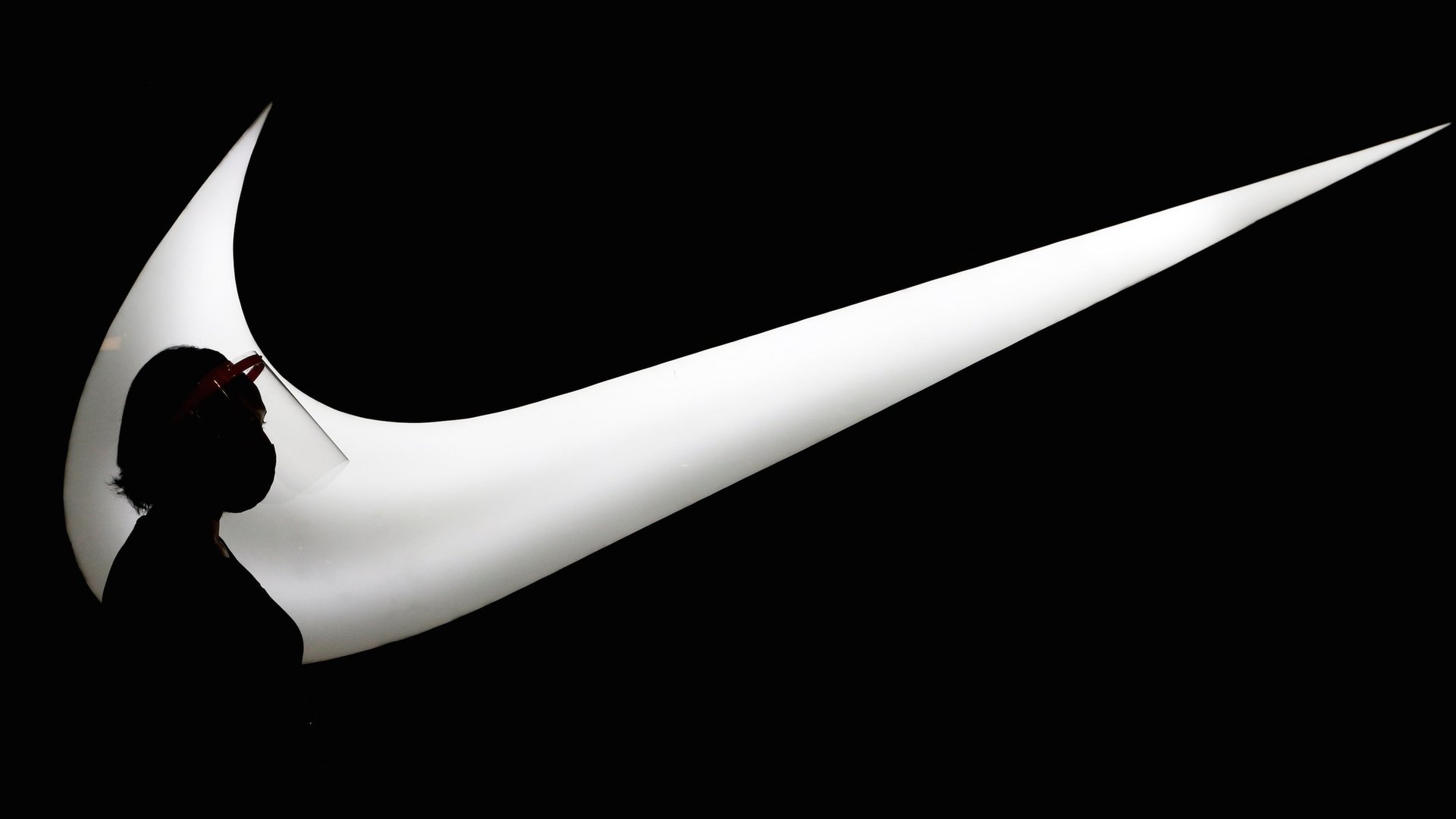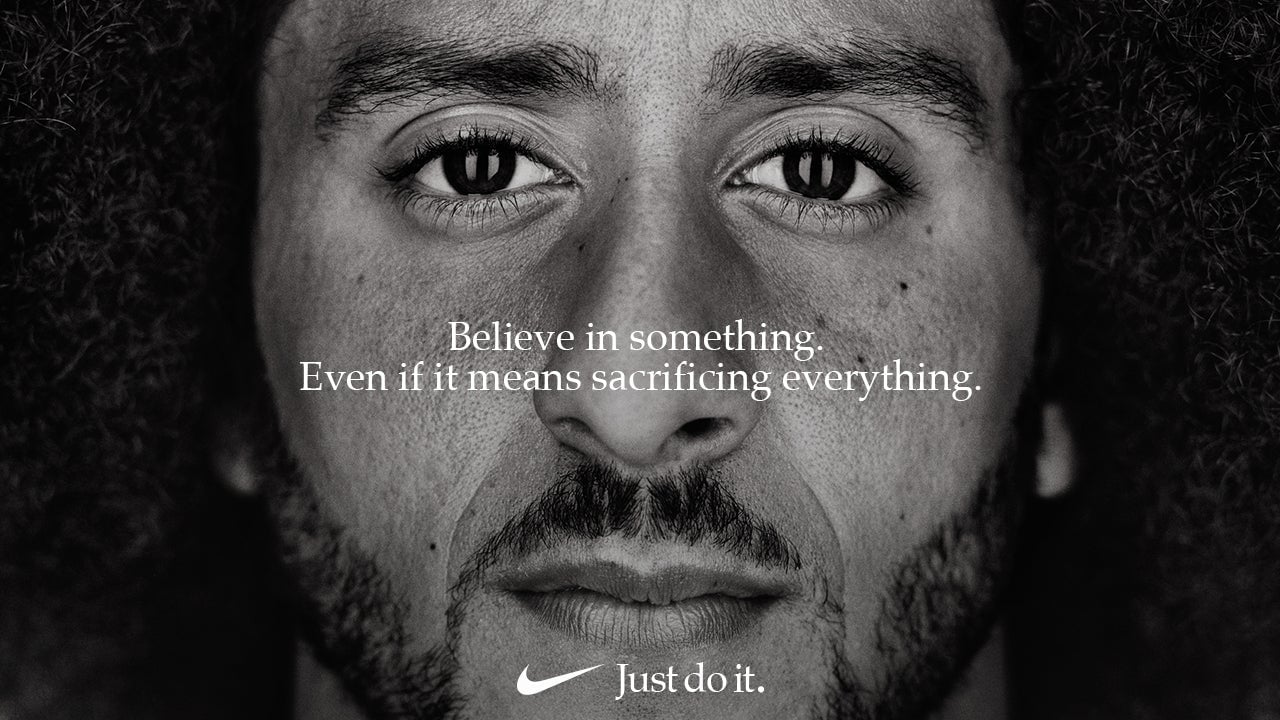If everybody hates wokewashing, why do companies still do it?
In 2017, Pepsi made a big mistake.


In 2017, Pepsi made a big mistake.
An ad starring Kendall Jenner had the model join a stylish, multi-ethnic crowd that had taken to the streets to rally for an undetermined purpose, at once exploiting and erasing the Black Lives Matter protests on which the scene was based. (“Join the Conversation,” a prominent sign blandly reads, the subject of said conversation entirely unknown.) Jenner strides up to a police officer and offers him a can of soda, which he drinks, prompting the crowd to break out in cheers. The problem, whatever it was, is solved forever!
The response to the ad was overwhelming: Everyone hated it. Within 48 hours, public outcry forced Pepsi to pull the tone-deaf ad and apologize. The brand took nine months to recover its reputation among millennials, according to a YouGov survey. All in all, it was a lesson in the dangers of wokewashing—superficial attempts at brand activism that consumers quickly identify as hypocritical or entirely meaningless, and torch on social media accordingly.
Three years later, wokewashing is still very much with us. In 2020, companies like Amazon have aired ads championing front-line laborers and their work during the coronavirus pandemic—which critics quickly panned as a “tactic for papering over the risks of working in warehouses and grocery stories, and easing our own tensions around benefiting from such work,” as Amanda Hess wrote in the New York Times.
After the police killing of George Floyd, companies including Nike, Adidas, Spotify, Apple, and L’Oreal took flak for professing to care deeply about racial justice while operating with overwhelmingly white leadership teams.
It’s a perplexing phenomenon. Clearly, brands risk major backlash when they express values that don’t align with their actions. So if everyone hates wokewashing, why do companies keep doing it?
Why companies weigh in on social issues
Companies today are under a lot of pressure to take a stand on social justice, and to act accordingly. “Because corporations wield such power—in some cases, more power than a small country—people quite rightly are holding them accountable because how they do business has an outsize impact on people and communities,” says Tensie Whelan, a clinical professor of business and society at New York University’s Stern School of Business and director of the school’s Center for Sustainable Business.
The pressure is coming from both consumers and employees. Edelman’s 2020 Trust Barometer, a report based on surveys involving more than 34,000 respondents around the world, found that a strong majority of employees wanted their CEOs to speak out about issues like income inequality (78%), diversity (77%), and climate change (73%). And companies often are quite responsive to employee concerns about social responsibility, Whelan says, as they’re aware they’re in a war for talent. “They know the younger generation are very concerned about these issues, and they want to get the best and the brightest.”
The Edelman survey also found that 64% of consumers are “belief-driven buyers”—that is, they may choose to purchase, switch from or to, or boycott a brand based on its stance on social issues. This stance is particularly common among highly coveted young consumers. Meanwhile, the Business Roundtable’s 2019 statement on the purpose of companies further pushed business leaders to accept the idea that they have a responsibility to engage in practices that benefit their employees, their surrounding communities, and the environment.
In this climate, a brand that declines to comment on an important political moment may well come under fire for inaction. Writing for The Conversation about how sports associations like the National Hockey League (NHL) responded to the police shooting of Jacob Blake in Kenosha, Wisconsin, marketing researchers Jessica Vredenburg, Amanda Spry, Joya Kemper, and Sommer Kapitan outline the risks of staying mum:
Whereas brands might once have avoided controversy, there is now a clear case for taking a stand—as the NHL discovered when it continued to play while other sports “went dark.” The backlash from fans and players alike forced the cancellation of two days’ play.
This is a notable shift from even a few years ago, says Vredenburg, a senior lecturer in marketing at Auckland University of Technology in New Zealand. In 2017, corporations saw the decision to address social issues as a “point of differentiation,” she tells Quartz. “Now it’s an expectation. If you don’t do it, you’re not meeting the bar.”
Does woke advertising work?
But all of this puts companies in a bit of a catch-22, because at the same time, consumers tend to be skeptical of brands that try to position themselves as champions of progressive causes. Vredenburg co-authored a study, published in the Journal of Public Policy & Marketing, that looked at how people responded to a 2018 Nike commercial featuring Colin Kaepernick, the former National Football League quarterback who famously knelt during the US national anthem to protest police brutality.
The study found that 60% of survey participants felt positively about Nike after viewing the ad. But of that group, only 45% thought Nike was genuinely committed to racial justice.

“People are used to companies lying to sell their products,” Whelan says, noting that consumer trust has been eroded by events ranging from Volkswagen’s emissions scandal all the way back to tobacco companies’ attempts to portray smoking as a healthy habit. And so people have quickly become attuned to the possibility that companies may misrepresent not just their products, but their politics.
Make them cry, make them buy?
One of the most notable recent critics of wokewashing comes from inside the corporate world itself. Speaking at the 2019 Cannes Lion International Festival of Creativity, Unilever CEO Alan Jope argued that the rise of wokewashing is hurting brands’ credibility and consumer trust.
“There are too many examples of brands undermining purposeful marketing by launching campaigns which aren’t backing up what their brand says with what their brand does,” he said. “Purpose-led brand communications is not just a matter of ‘make them cry, make them buy.’ It’s about action in the world.”
Yet Unilever, a multinational corporation, has itself been vulnerable to allegations of wokewashing.
Unilever owns a number of brands associated with progressive issues, including Dove and Ben & Jerry’s, and has invested heavily in “purpose-driven marketing”—such as Dove’s body-positive marketing campaigns or its Love Beauty and Planet subsidiary’s 2019 print ad that could be reused as holiday gift wrap.
It’s also gotten pushback for some of these efforts, such as Dove’s disastrous Real Beauty Bottles campaign in 2017. The gimmick: a lineup of plastic packaging in different shapes and sizes, such as pears and hourglasses, evoking women’s body types. (“It doesn’t seem like this was a woman’s idea,” Angeline Close Scheinbaum, an advertising professor at the University of Texas at Austin, told the Washington Post, which concluded that “[t]here is a difference between feeling comfortable in your body and being unnecessarily prodded to make buying decisions based on your body’s contours.”)
Unilever also is the owner of notably controversial brands such as Glow & Lovely, an Indian skin-lightening cosmetics line known until recently as Fair & Lovely and frequently criticized for promoting colorism, and Axe, the men’s personal-care line that has sought in recent years to distance itself from its history of sexist ads.
And so while Jope’s explanation of how wokewashing hurts brands is clear-sighted, it’s less clear that Unilever can consistently live up his promise that “Unilever will not be part of false purpose and will not work with those who are.”
The branding of “woke bravery”
Perhaps because many companies are aware that they can’t make authentic claims about their commitment to social issues, they sometimes turn instead to advertisements featuring celebrities and individuals who are associated with global justice and equality movements in some respect. Nike’s ads featuring Kaepernick fall into this category. So does Coca-Cola’s recent “Stand for Change” commercial, which was released in response to the Black Lives Matter movement and paid tribute to Black excellence, with shots of prominent Black Americans like swimmer and US Olympic gold medalist Simone Manuel and opera singer Davóne Tines.
Francesca Sobande, a lecturer in digital media studies at the School of Journalism, Media, and Culture at Cardiff University in Wales, argues these kinds of advertisements are a pernicious form of wokewashing. She says she’s skeptical of ads that “make use of celebrities as if mere representational gestures mean they’re doing something on the ground to support” social causes.
In her paper on the subject, forthcoming in the European Journal of Marketing, Sobande explains the self-serving nature of such ads. “The branding of ‘woke’ bravery can implicitly position brands as being brave; risk-taking for appearing to align themselves with famous individuals and social movements that may be strongly associated with the divisiveness that accompanies iconicity,” she writes. Just because Kaepernick is fighting oppression doesn’t mean that it’s part of Nike’s brand purpose—a point driven home this summer, when past and present Black Nike employees called the company out on social media for allegedly perpetuating racism within its own ranks while engaging in “performative allyship.” Around that time, Nike had also released an ad declaring, “For once, don’t do it … Don’t turn your back on racism.”
Many companies were similarly held to task in the wake of this year’s Black Lives Matter protests over the ways they’d failed to live up to the values they professed in ads and statements—whether via overwhelmingly white leadership teams, alleged discrimination against Black employees, products and practices that actively perpetuated racial inequality, or fundamental inaction.
“Unfortunately, most companies have done very little to date” to combat racism, says Whelan. “Giving money to the cause, while terrific, is no substitute for putting in place transparent reporting and targets and programs to ensure that you’re providing and supporting people of color within your company.”
But even as brands risked blowback over the emptiness of their gestures, a good number seemed to conclude they had more to lose by saying nothing. As Netflix tweeted: “To be silent is to be complicit.”
How to avoid wokewashing
While consumers are rightfully wary of brands, the truth is that it’s tricky for companies to avoid wokewashing at this juncture. Initially, Auckland University of Technology’s Vredenburg says, her advice to brands on how to avoid wokewashing involved “picking and choosing what you align with so that it’s something you have credibility to speak on.” When Dick’s Sporting Goods decided to stop selling semi-automatic weapons and scale back gun sales after the 2018 school shooting in Parkland, Florida, for example, it was clear the company was taking a concrete step against gun violence.
But as companies are increasingly expected to take a stand on major issues, Vredenburg says, “it’s harder for a brand to choose not to say something.” Another option may be for companies to be transparent about the fact that they have a subpar track record on a given issue, and explain how they’re working to change it, rather than presenting themselves as holding any kind of moral high ground.
In the meantime, everyone else should keep scrutinizing how companies’ messaging lines up (or doesn’t) with their practices. And while it’s perfectly reasonable to hate wokewashing, it’s worth remembering that there are upsides to a world in which corporations feel pressure to make public statements about climate change or inequality.
“It’s extremely useful to get corporations on the record saying they’re committing,” Whelan points out. “If they don’t carry through, they can be held accountable.”